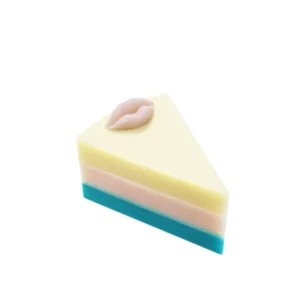

The history of creating artisan soap is extensive and fascinating, spanning thousands of years. The earliest records of soap production date from 2800 BC, when a soap-like material was found on clay cylinders in ancient Babylon. The ancient Egyptians produced their own soap by combining alkaline salts with a blend of vegetable & animal oils. Making soap was an art that the Greeks and Romans refined, applying it to both medicinal and personal hygiene applications. But the creation of soap bars using tallow and ashes did not establish soap making as a major industry in Europe until the Middle Ages.
Artisanal soap making declined as a result of the Industrial Revolution, which saw a more efficient & mass-produced soapmaking process. On the other hand, traditional, handmade soaps have seen a resurgence in popularity recently. By employing natural ingredients and age-old techniques, artisan soap makers have brought back the ancient art of soap making to produce distinctive, premium goods. The art of making soap has come back into favor, & as a result, there is now a growing market demand for artisanal soaps. Utilizing natural ingredients is one of the hallmarks of artisan soap production.
Crafted using natural oils, butters, and botanicals, artisan soaps differ from commercial soaps, which are frequently made with harsh detergents and synthetic chemicals. These organic components add to the overall excellence and distinctiveness of artisan soaps in addition to offering a host of skin-benefiting properties. Because they are nourishing and moisturizing, natural oils like olive, coconut, and shea butter are frequently used in the production of artisan soap. These oils contribute to the skin’s hydration and moisture retention, making it feel smooth & elastic. In addition, because of their calming and restorative qualities, botanical ingredients like calendula, chamomile, and lavender are frequently added to artisan soaps. These all-natural additions can soothe irritated skin, lessen inflammation, and improve the general condition of the skin.
Moreover, artisan soap makers are following consumer trends toward cleaner, more sustainable products by using natural ingredients in their creations. A growing number of people are looking for natural skincare product substitutes that are kind to the environment and their skin. Since they are dedicated to using only natural, pure ingredients that are good for the earth and the skin, artisan soaps have become increasingly popular.
| Artisan Soap Making Tradition | Metrics |
|---|---|
| Number of Artisan Soap Makers | 200 |
| Types of Artisan Soaps | 15 |
| Artisan Soap Workshops | 10 |
| Artisan Soap Fairs | 5 |
In terms of ingredients, fragrances, and designs, the possibilities for crafting artisan soap are virtually limitless. Artisan soap makers have the liberty to explore diverse blends of oils, botanicals, and essential oils to craft distinctive and opulent products, in contrast to mass-produced soaps that frequently adhere to a set recipe. Since it enables makers to incorporate their individual styles and artistic flair into their creations, creativity is crucial to the process of creating artisan soap. Artisan soaps are a manifestation of the maker’s creativity and attention to detail, from swirling vivid colors to embedding botanicals & creating intricate designs.
Also, adding essential oils to artisan soaps not only adds fragrance but also has therapeutic benefits, enabling makers to customize soaps to suit individual skin types and needs. Craftsmen who make soap are always looking for new methods and ingredients to improve their craft, so innovation is also essential. Craftsmen soap manufacturers are constantly pushing the envelope to produce remarkable goods, whether it’s by experimenting with various oil blends, adding unusual botanicals, or investigating eco-friendly packaging strategies. Craftsman soaps are relevant and appealing to customers searching for unique, premium skincare products because of their dedication to innovation. Crafting artisan soap by hand is an arduous task requiring dexterity, accuracy, and meticulous attention to detail.
In contrast to large-scale manufacturing and automated machinery commonly used in commercial soap production, artisan soap making is a manual process that gives makers total control over every aspect of the final product. Crafting artisan soap begins with making the soap base, which is as simple as measuring and mixing oils like olive, coconut, & shea butter with lye (sodium hydroxide) thoroughly. After that, this mixture is heated and mixed until it reaches trace, which is the point at which the lye and oils have combined to create a thickened consistency. At this point, distinctive variations can be made by incorporating colorants, botanicals, essential oils, or other additives into the soap base.
As a result, a batch of expertly made artisan soaps is prepared for packaging and consumer enjoyment. There are many advantages that artisan soaps have for the skin and general health. Artisan soaps are mild and nourishing for all skin types, even dry or sensitive skin, because they are made with natural ingredients. Natural oils that leave the skin feeling soft and moisturized include olive oil and shea butter. These oils offer deep hydration without depleting the skin of its natural oils.
Also, essential oils with aromatherapeutic qualities that can improve mood, encourage relaxation, or offer other wellness advantages are frequently added to artisan soaps. Citrus essential oils, on the other hand, can stimulate and enliven the senses. Lavender essential oil, for instance, is well-known for its calming properties. In addition to improving the bathing experience, these organic scents also support general wellbeing.
Artisan soaps are not only good for the skin, but they are also sustainable and kind to the environment. Because they use ingredients that are sourced ethically and use eco-friendly packaging, many artisan soap makers make their products a conscious choice for customers who are concerned about their impact on the environment. Customers can enjoy premium skincare products & support sustainable practices by selecting artisan soaps over mass-produced alternatives. The vitality of a community and economy depends on the support of small businesses and local artisans.
Customers who choose to buy artisan soaps from nearby producers are directly supporting small companies and artisans who put their hearts and souls into making one-of-a-kind goods. This assistance keeps age-old crafts alive, such as soapmaking, & motivates makers to keep improving their abilities and exhibiting their works to the public. Supporting regional artisans also encourages a feeling of authenticity & connection in the goods that customers bring into their homes.
By supporting local makers, customers have the opportunity to discover the origins of each product, the inspiration behind its design, & the principles that inform the maker’s artistic vision. Customers have a more meaningful shopping experience because of this personal connection, which gives the products they buy more depth and significance. Purchasing products made locally benefits the community as a whole in addition to assisting individual artisans. By boosting economic growth, generating jobs, & encouraging a feeling of community pride, local businesses support the local economy. Customers can enjoy high-quality, handcrafted goods and contribute to the development of a more lively & resilient community by supporting local small businesses and artists.
Those who have a strong desire to make soap & are thinking about launching their own handmade soap company should bear the following points in mind:1. Learn your trade: You should become an expert soap maker before starting a business. To create your own distinct style and product line, take the time to experiment with various ingredients, methods, & recipes. 2. Investigate laws: Become acquainted with regional statutes and specifications for the sale of handcrafted cosmetics.
To guarantee adherence to health and safety regulations, this can entail obtaining the required licenses or certifications. 3. Construct a strong business plan that includes your target market, marketing tactics, cost of production, pricing strategy, and expected sales. Your company’s success can be guided by a well-written business plan. 4. Obtain premium ingredients: To guarantee that your products live up to strict quality & sustainability standards, make an investment in premium natural ingredients from reliable vendors. 5. Create an online presence to connect with customers, promote your brand, & show off your products.
You can do this by creating a website or using social media to get online. 6. Get involved in your community by taking part in pop-up events, craft fairs, & local markets to promote your products to potential clients & build relationships with other local artisans. 7. Prioritize customer satisfaction: To develop a devoted clientele and encourage positive word-of-mouth recommendations, deliver exceptional customer service and put the needs of your customers first.
You can make your passion for creating artisan soap into a lucrative business that fulfills you and your clients by adhering to these guidelines and remaining committed to your trade.
Discover the artistry and passion behind La Savonnerie Divine, a renowned artisanal soap maker with a rich history and dedication to creating luxurious, premium soaps. Their commitment to quality and tradition is evident in every handcrafted bar, making them a standout in the industry. For more insights into their story and offerings, check out their website here.
Artisan soap making is the process of creating soap by hand using traditional methods and natural ingredients. This craft often involves the use of essential oils, herbs, and other natural additives to create unique and high-quality soaps.
Artisan soap making has a long history, dating back to ancient civilizations such as the Babylonians, Egyptians, and Romans. These early soap makers used a combination of animal fats and ashes to create soap for cleaning purposes. Over time, the craft evolved, and by the 18th and 19th centuries, soap making became a popular household activity.
Artisan soap is often made with natural ingredients and essential oils, making it gentle and nourishing for the skin. Additionally, artisan soaps are often free from harsh chemicals and synthetic fragrances, making them a popular choice for individuals with sensitive skin.
The basic steps of artisan soap making include gathering and measuring ingredients, melting oils and fats, mixing lye with water, combining the lye solution with the oils, adding essential oils or other additives, pouring the mixture into molds, and allowing it to cure for several weeks before use.
Artisan soap making can be a sustainable practice when using natural and ethically sourced ingredients. Many artisan soap makers prioritize sustainability by using organic oils, responsibly sourced additives, and eco-friendly packaging. Additionally, handmade soaps often have a lower environmental impact compared to mass-produced commercial soaps.








Copyright © 2024 La Savonnerie Divine | Marketing & Design Geek in NY 🗽